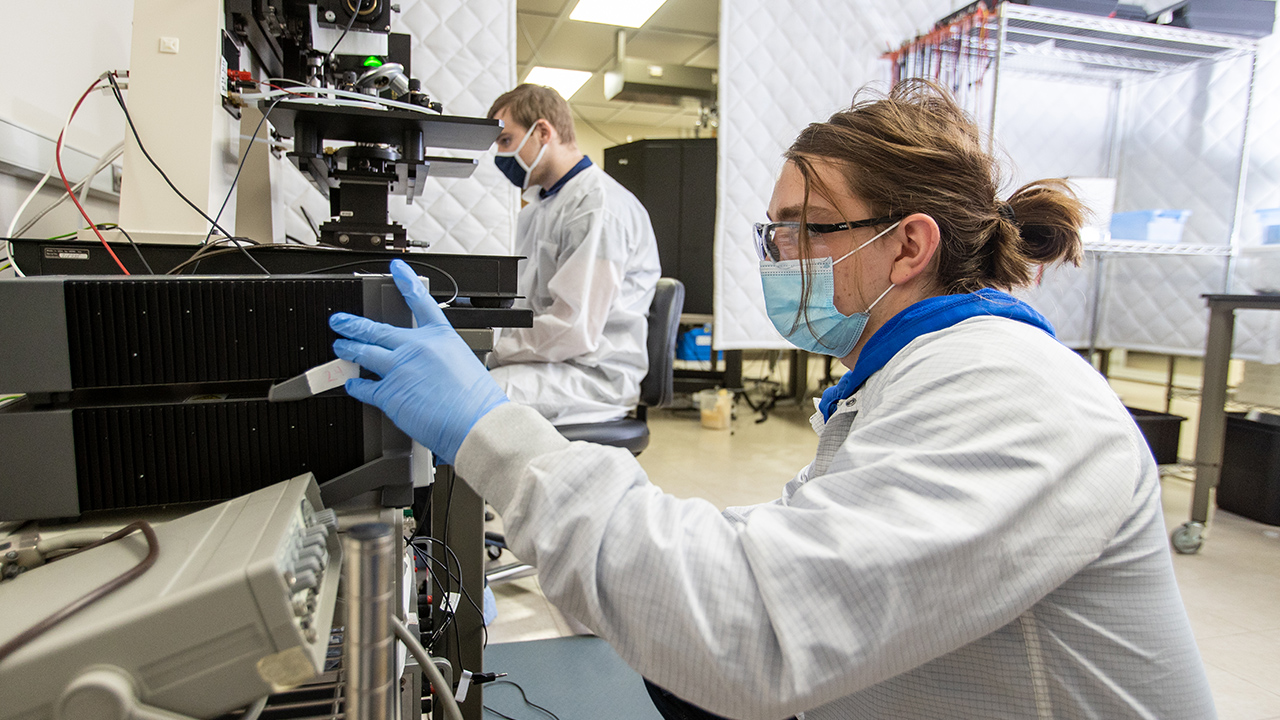
Two University of Wisconsin-Platteville electrical engineering students will showcase their research project, “Carbon Nanotube Electronics” at this year’s Research in the Rotunda held on March 9 in the state Capitol. Devon Lee, a junior from Madison, Wisconsin, and Eliot Driessen, a sophomore from Kimberly, Wisconsin, are assisting Dr. Hal Evensen, professor of engineering physics, with his research in the nano lab.
“What we are doing is turning carbon nanotubes, which are small tubes that are like sticks made up of carbon, into transistors,” said Driessen. “It’s like an electronic switch that can turn on and off. It’s the basis of our computers and many of our electronics today.”
“Last semester, we made two different devices. Only one of them worked,” added Lee. “The biggest question now is why the other one didn’t. It’s great we have results, but we want to first make sure we can replicate them, and from there based on what we see will determine our next path.”
Lee and Driessen will present their findings to legislators, state leaders and peers from across the UW System. Both students have been working on the project for nearly two years. They both state they’re excited to share their findings.
“I hope lawmakers learn undergraduate research is important – we are making real discoveries,” said Lee. “We are learning skills that will make us valuable in the industry. It really shines well on UW-Platteville and what we are doing.”
Driessen emphasizes the importance of undergraduates getting the exposure to share their results. Currently, the ongoing project involves 17 different steps in their process. This spring, Driessen said they will focus their attention to increase the efficiency of the transistors.
“What we are doing specifically is we are adding a vertical field effect instead of horizontal; it’s the big goal we are trying to accomplish,” he said. “We are trying to get it to work as best as we can in our laboratory.”
As the students prepare to present next month, they echo the importance of having the opportunity to conduct undergraduate research.
“I’m taking the concepts from my classes and using them in real-life situations,” said Lee. “It’s a lot of problem solving. It’s research. There’s not a given answer in the book. It’s exciting to piece things together and make different conclusions.”
“You learn so many things,” added Driessen. “It’s amazing. I would recommend it to anyone. It’s so much fun and you get so much good experience with it.”